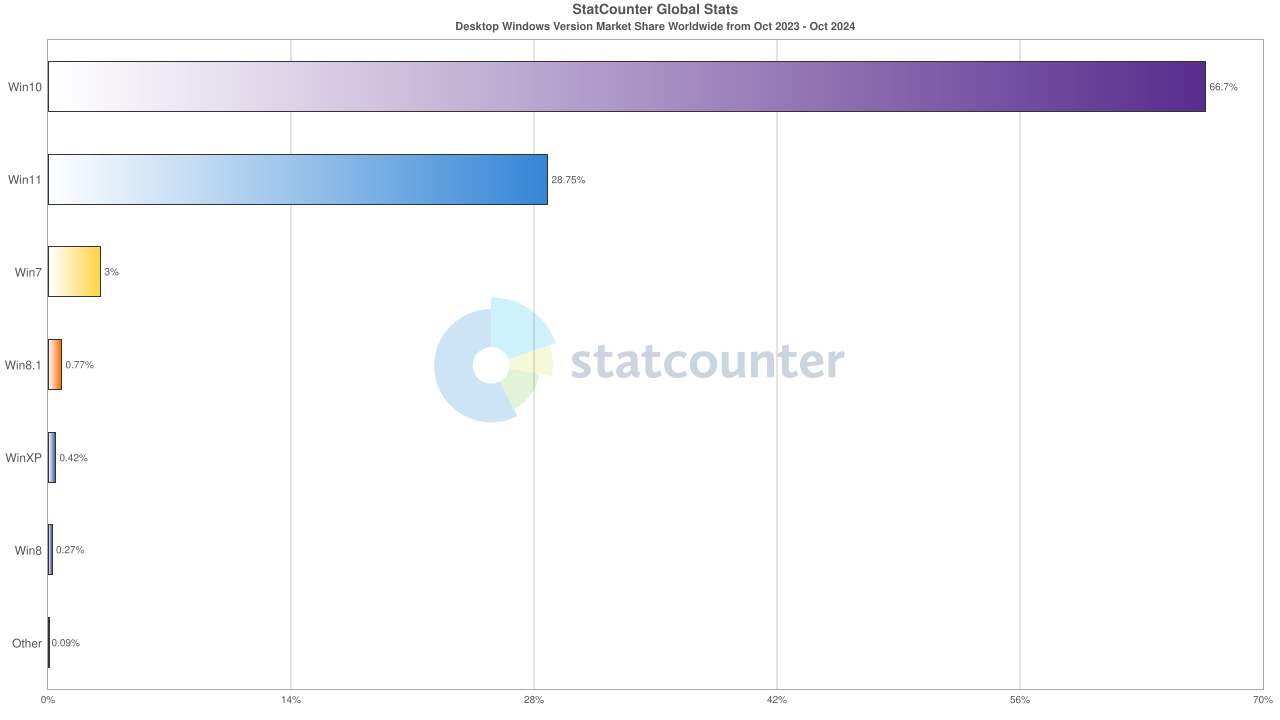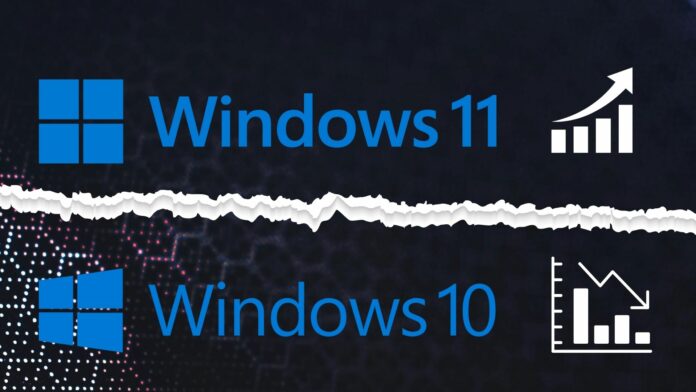Windows 10 has always been ahead of Windows 11 since its launch. Microsoft’s expectations haven’t been met, even after polishing the successor and integrating AI into the mix. But there is a ray of hope because Windows 11’s market share exceeded the 35 percent mark this month.
The successor, aka Windows 11, steadily captured the desktop market share while Windows 10 dwindled to the 60% mark. If this trend continues, Windows 10 will soon enter the late 50% range, which is bad news for its supporters.
In September 2024, Windows 11 stood at 33.42%, while Windows 10 dropped to 62.75%. For October, the stats are 35.58% and 60.95%, as per the official report released by Statcounter.

Windows 11 is also the top-most choice of gamers. Steam’s Hardware & Software Survey for October 2024 reveals a sharp 4.28% growth in Windows 11 64-bit users. Windows 10 64-bit user base dropped by 2.71% and now stands at 45.95%.


Should you switch now?
Microsoft will support Windows 10 until October 14, 2025, which is less than a year from now. They don’t have any plans to keep it live for consumer editions, which is reflected in their Extended Security Updates (ESU) program.
The company will charge $30 to keep delivering security updates for one year. Come October 2026, you’ll have to make a tough decision to get rid of Windows 10 and migrate to Windows 11. Enterprise editions have a different Extended Security Updates (ESU) program, which offers support for three years, but consumer edition users like us can only purchase the one-year extension.
Both Microsoft and Windows 10 users have less than one year to decide. We are still confused about whether Microsoft will infuriate more than 50 desktop market share with this decision.
Why would a user pay $30 (one-third cost of a Windows 11 Home license) only to get security updates for a year? Why doesn’t the consumer edition offer plans for two and three years? Won’t Windows 11’s system requirement render many usable PCs “useless”?
Microsoft is already gloating about its Copilot+ PCs being 5x faster than popular 5-year-old PCs. The improved hardware does offer performance benefits, but is it really sensible to coerce Windows 10 users to purchase a new PC just to run Windows 11?
We hope the Redmond giant pays attention to these questions and offers a solution to maintain Windows 10 and not force everyone into the “era of AI.”





